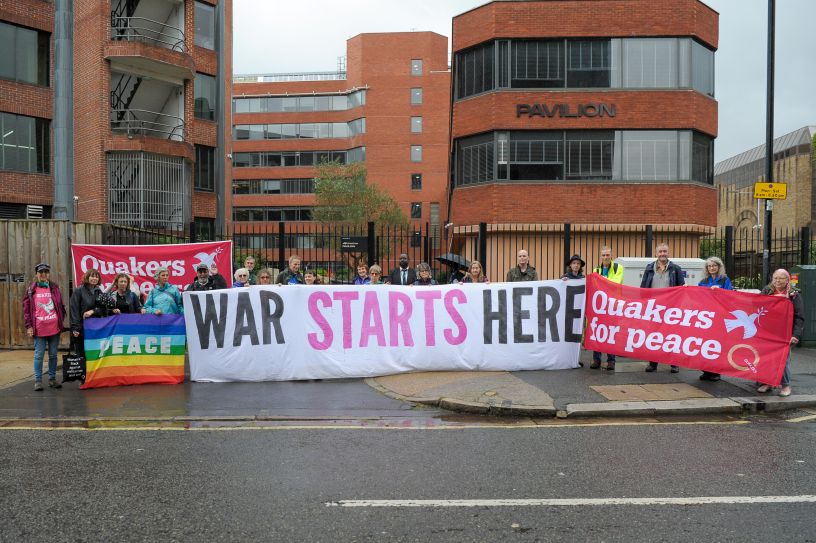Quakers denied intervention in court challenge over faith rights in terror law case
Quakers in Britain has been refused permission to give evidence in a landmark legal challenge to the UK government's proscription of Palestine Action as a terrorist group.

Quakers had applied to take part in the case because the ban seriously violates their right to freedom of religion.
A High Court judge acknowledged Quakers' concerns were “seriously held" but denied them permission to intervene.
Mr Justice Chamberlain considered that the Quaker arguments did not add to the overall case that the proscription chills legitimate speech since the evidence already provided was sufficient to address this.
However, Quakers argued that their testimony is unique in highlighting how the order threatens freedom of thought, conscience, and religion under Article 9 of the Human Rights Act.
They said that freedom of religion is a separate issue to that of freedom of speech more widely. They are disappointed that the court will not hear their evidence of the real impact the proscription order has had on Quakers' ability to put their faith into action.
[QUOTE-START]
For Quakers, faith and action are inseparable
- Paul Parker
[QUOTE-END]
Quakers argued that their testimony is unique in highlighting how the order threatens freedom of thought, conscience, and religion under Article 9 of the Human Rights Act.
They said that it was disappointing that the evidence would not be heard by the court when it decides on the validity of the proscription order.
“For Quakers, faith and action are inseparable," said Paul Parker, recording clerk for Quakers in Britain.
“Peaceful protest, prayer, and non-violent action are expressions of our worship. When this is criminalised, our religious freedom is under attack."
As a church and charity, Quakers in Britain has never worked with or supported Palestine Action, but wide ranging and vague proscription laws mean they have struggled to navigate the implications.
By classifying Palestine Action as a terrorist group, the government has made expressing support for them a crime under the 2000 Terrorism Act.
Hundreds of people have been arrested after breaking this prohibition to assert their right to free speech.
Quakers say the proscription of a direct-action protest group continues a worrying trend of state repression against dissent.
“We are deeply concerned about the increasing use of heavy-handed policing, surveillance, and criminalisation to silence dissent," said Parker.
“The right to protest and speak truth to power is essential in a democratic society. Repressing it damages us all."
Parker said: "Quakers warned in 2000 when the Terrorism Act came into force that it was too broad, too vague and a threat to civil liberties.
“In particular, extending the definition of terrorism to include damage to property takes the UK's approach far beyond international norms.
“Now we have seen dozens of Quakers - some of them elderly, some of them disabled, all of them heartbroken by the genocide being committed in Gaza - being arrested under terrorism laws just for sitting peacefully in protest."
The government proscribed Palestine Action as a terrorist organisation in July and the High Court later granted a judicial review of the decision to be heard in November.
The decision to grant a judicial review has been appealed by the government and this appeal will be heard on 25 September.